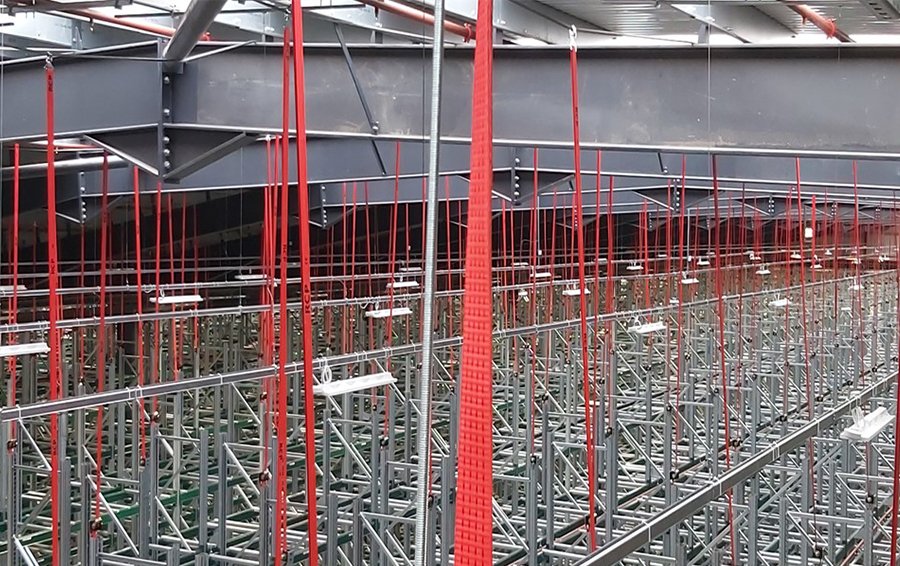Through vision and innovation Rack Collapse Prevention’s (RCP) unique top-supporting pallet racking safety system is transforming traditional storage and warehouse pallet racking safety.
Ideal for at height pallet racking environments above 6-meters, Rhino can be installed in ambient, chilled and frozen environments. RCP’s safety system eliminates the risk from forklift operator error and or incorrect pallet stacking.
RCP Company Founder Craig Attwell comments: “RCP’s Rhino safety support system uses wire suspension cables from the racking top rather than supporting from the bottom, so in any impact-event the structure remains standing, protecting both staff and stock.”
Traditional floor-based racking guards have significant limitations in preventing racking collapse, particularly in the event of a major impact. RCP’s top supporting Rhino system is a world first. If a building’s steel structure isn’t suitable for Rhino, then a secondary steel structure is installed and once the system is in place, a damaged leg cannot then collapse.
Where RCP’s Rhino safety system is fitted to fully loaded racking in a classic steel framed warehouse, in the event of a single or multiple support leg damage incident, racking would drop slightly but remain stable and prevent rack collapse failure. Benefits derived directly from installing Rhino include reduced insurance premiums, it eliminates the risk of racking collapse, is maintenance free and it helps to reduce the risk of serious injury and death.
Used by logistics specialists and food storage companies across the UK and Europe, RCP has over 30 years food and storage industry experience and the Rhino safety system is helping more and more companies identify and remove the dangers of pallet racking failure.
Added Craig: “Our pallet racking safety support system is ideal for anywhere pallet racking is used, and in all environments, to hold or store product, and particularly when used at height.”






